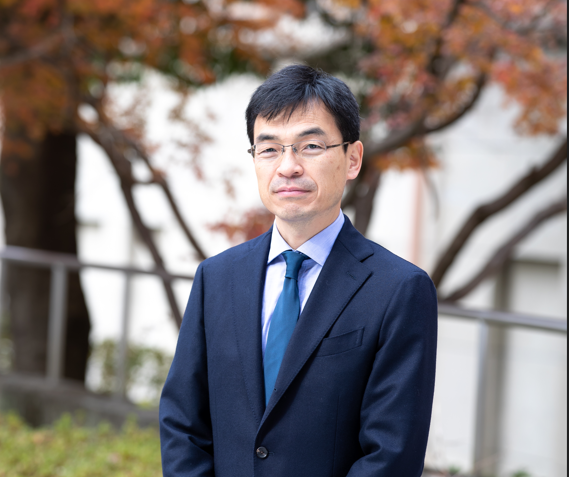Message From the Dean
JAPANESE PAGE
Katsutoshi Wakai
Kyoto has historically been a cultural center of Japan, and even now, many traditional industries flourish here. At the same time, it has also produced several innovative companies with world-leading technologies, and it has established itself as a global innovation center. A number of the world’s top universities are also clustered in Kyoto, with approximately 150,000 students studying at around 40 universities in the city, including over 12,000 overseas students. Kyoto University Faculty of Economics was established in 1919, making it one of the longest-standing economics faculties among Japanese universities. Throughout its over-100-year history, the faculty has made a tremendous contribution to the development of the field of economics both in research and in education. Faculty staff with richly unique backgrounds have conducted their own independent research, which has contributed to education in turn. After studying at the faculty, many of our economics students are now leading the field as they conduct research at universities throughout Japan and the world. Our distinctive characteristics are a blend of “tradition and innovation” suitable for the Kyoto region and an “atmosphere of liberal intelligence” that has been a common hallmark of our predecessors at Kyoto University. Over the past few years, we have been actively hiring talented younger teaching staff and producing research results of a high level by international standards.
The Faculty of Economics has over 1,000 students and offers a systematic curriculum that combines deep expertise, built by completing entry level to advanced subjects, with a broad interdisciplinary approach that classifies each subject into four courses and allows students to flexibly study adjacent subjects. We also emphasize a small class size and hold seminars for third- and fourth-year students. Recently, several students have also been studying at overseas universities with which we have concluded international exchange agreements. Furthermore, we offer a five-year bachelor and master’s program (system for early completion of master’s subjects) that allows students who meet certain conditions to take master’s subjects in their fourth undergraduate year. These extensive systems enable undergraduate students to set their own targets and explore their individuality. Graduates from the faculty cover a wide range, from those who aspire to advance to the master’s course and become researchers to those who go on to find work in private firms or government agencies both in Japan and aboard, participating on the front lines as talented human resources.
The Graduate School of Economics was established in 1953 and has over 200 graduate students enrolled today (including over 100 students from overseas). The master’s course was reorganized in 2019, and two programs were established: (1) the Academic Researcher Development Program for those who aim to advance to a PhD course and become researchers, and (2) the Professional Analyst Development Program for those who aim to acquire expertise that meets the demands of society and practical economics analysis capabilities. We offer wide-ranging curricula with diverse subjects that align with the respective programs. Students in our doctoral course receive guidance from their supervisor and participate in and present at various seminars as they focus on writing a high-level doctoral thesis. To further promote internationalization, we established the International Graduate Program for East Asia Sustainable Economic Development Studies course in 2009, followed by the International Joint Master Degree Program in Global Markets, Local Creativities in 2021. These programs draw top students from countries around the world and are, in principle, taught in English.
The Graduate School of Economics and Faculty of Economics provide an optimal environment for economics research and study, including intellectual infrastructure such as the Graduate School of Economics and Faculty of Economics Library, which boasts a collection of 570,000 volumes and access to databases and electronic journals via Wi-Fi. In addition, the Faculty of Economics admits students with various backgrounds, including those who majored in humanities or science in high school, individuals with special skills, graduates from foreign schools, and third-year transfer students. These include people with advanced knowledge of humanities, talented science students, and people from various countries and academic backgrounds. The Faculty is a leading example of diversity within Kyoto University. Students with different backgrounds encounter one another at seminars and discuss topics with their teachers and senior students, helping to hone their skills and knowledge. This in turn stimulates creativity and encourages personal growth as they develop into human resources who can contribute to the development of a knowledge creation society. We value such spaces, and we will continue striving ceaselessly to enhance them even further.